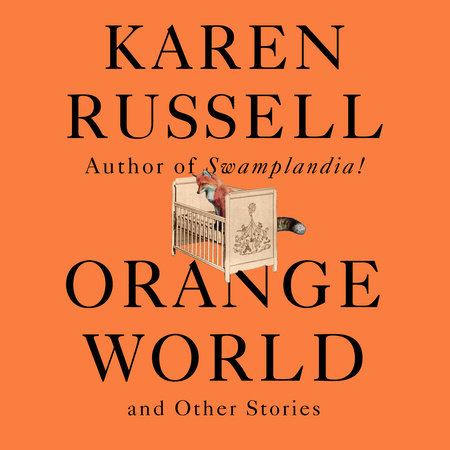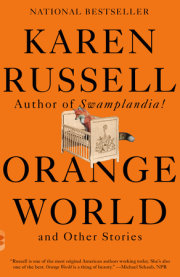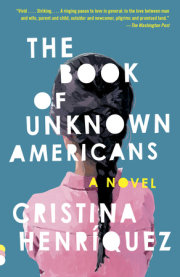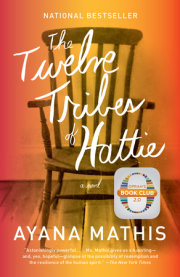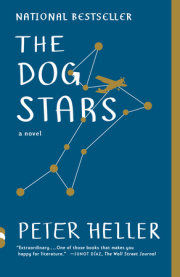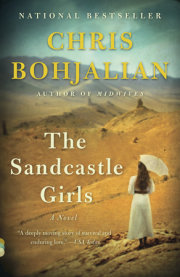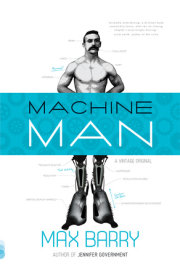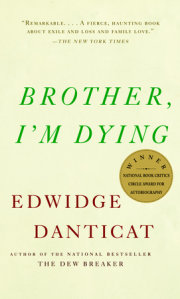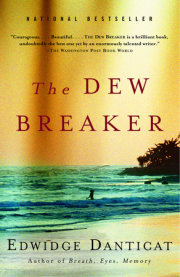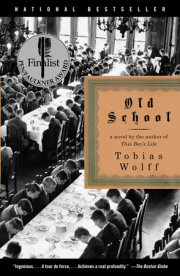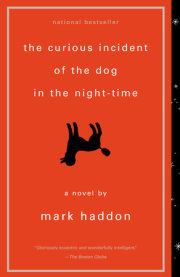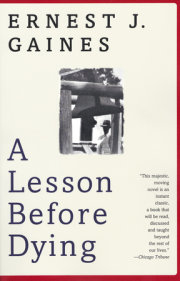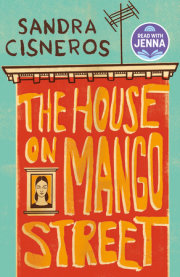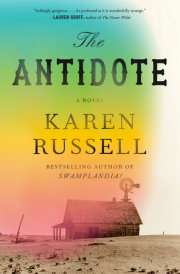Excerpted from "The Prospectors"
The entire ride would take eleven minutes. That was what the boy had promised us, the boy who never showed.
To be honest, I hadn’t expected to find the chairlift. Not through the maze of old-growth firs and not in the dwindling light. Not without our escort. A minute earlier, I’d been on the brink of suggesting that we give up and hike back to the logging road. But at the peak of our despondency we saw it: the lift, rising like a mirage out of the timber woods, its four dark cables striping the red sunset. Chairs were floating up the mountainside, forty feet above our heads. Empty chairs, upholstered in ice, swaying lightly in the wind. Sailing beside them, just as swiftly and serenely, a hundred chairs came down the mountain. As if a mirror were malfunctioning, each chair separating from a buckle-bright double. Nobody was manning the loading station; if we wanted to take the lift we’d have to do it alone. I squeezed Clara’s hand.
A party awaited us at the peak. Or so we’d been told by Mr. No-Show, Mr. Nowhere, a French boy named Eugene de La Rochefoucauld.
“I bet his real name is Burt,” Clara said angrily. We had never been stood up before. “I bet he’s actually from Tennessee.”
Well, he had certainly seemed European, when we met him coming down the mountain road on horseback, one week ago this night. He’d had that hat! Such a convincingly stupid goatee! He’d pronounced his name as if he were coughing up a jewel. Eugene de La Rochefoucauld had proffered a nasally invitation: would we be his guests next Saturday night, at the gala opening of the Evergreen Lodge? We’d ride the new chairlift with him to the top of the mountain, and be among the first visitors to the marvellous new ski resort. The President himself might be in attendance.
Clara, unintimidated, had flirted back. “Two dates—is that not being a little greedy, Eugene?”
“No less would be acceptable,” he’d said, smiling, “for a man of my stature.” (Eugene was five feet four; we’d assumed he meant education, wealth.) The party was to be held seven thousand feet above Lucerne, Oregon, the mountain town where we had marooned ourselves, at nineteen and twenty-two; still pretty (Clara was beautiful), still young enough to attract notice, but penniless, living week to week in a “historic” boarding house. “Historic” had turned out to be the landlady’s synonym for “haunted.” “Turn-of-the-century sash windows,” we’d discovered, meant “pneumonia holes.”
We’d waited for Eugene for close to an hour, while Time went slinking around the forest, slyly rearranging its shadows; now a red glow clung to the huge branches of the Douglas firs. When I finally spoke, the bony snap in my voice startled us both.
“We don’t need him, Clara.”
“We don’t?”
“No. We can get there on our own.”
Clara turned to me with blue lips and flakes daggering her lashes. I felt a pang: I could see both that she was afraid of my proposal and that she could be persuaded. This is a terrible knowledge to possess about a friend. Nervously, I counted my silver and gold bracelets, meting out reasons for making the journey. If we did not make the trip, I would have to pawn them. I argued that it was riskier
not to take this risk. (For me, at least; Clara had her wealthy parents waiting back in Florida. As much as we dared together, we never risked our friendship by bringing up that gulf.) I touched the fake red flower pinned to my black bun. What had we gone to all this effort for? We owed our landlady twelve dollars for January’s rent. Did Clara prefer to wait in the drifts for our prince, that fake frog, Eugene, to arrive?
For months, all anybody in Lucerne had been able to talk about was this lodge, the centerpiece of a new ski resort on Mt. Joy. Another New Deal miracle. In his Fireside Chats, Roosevelt had promised us that these construction projects would lift us out of the Depression. Sometimes I caught myself squinting hungrily at the peak, as if the government money might be visible, falling from the actual clouds. Out-of-work artisans had flocked to northern Oregon: carpenters, masons, weavers, engineers. The Evergreen Lodge, we’d heard, had original stonework, carved from five thousand pounds of native granite. Its doors were cathedral huge, made of hand-cut ponderosa pine. Murals had been commissioned from local artists: scenes of mountain wildflowers, rearing bears. Quilts covered the beds, hand-crocheted by the New Deal men. I loved to picture their callused black thumbs on the bridally white muslin. Architecturally, what was said to stun every visitor was the main hall: a huge hexagonal chamber, with a band platform and “acres for dancing, at the top of the world!”
W.P.A. workers cut trails into the side of Mt. Joy, assisted by the Civilian Conservation Corps boys from Camp Thistle and Camp Bountiful. I’d seen these young men around town, on leave from the woods, in their mud-caked boots and khaki shirts with the government logo. Their greasy faces clumped together like olives in a jar. They were the young mechanics who had wrenched the lift out of a snowy void and into skeletal, functioning existence. To raise bodies from the base of the mountain to the summit in eleven minutes! It sounded like one of Jules Verne’s visions.
“See that platform?” I said to Clara. “Stand there, and fall back into the next chair. I’ll be right behind you.”
At first, the climb was beautiful. An evergreen army held its position in the whipping winds. Soon, the woods were replaced by fields of white. Icy outcroppings rose like fangs out of a pink-rimmed sky. We rose, too, our voices swallowed by the cables’ groaning. Clara was singing something that I strained to hear, and failed to comprehend.
***
Clara and I called ourselves the Prospectors. Our fathers, two very different kinds of gambler, had been obsessed with the Gold Rush, and we grew up hearing stories about Yukon fever and the Klondike stampeders. We knew the legend of the farmer who had panned out a hundred and thirty thousand dollars, the clerk who dug up eighty-five thousand, the blacksmith who discovered a haul of the magic metal on Rabbit Creek and made himself a hundred grand richer in a single hour. This period of American history held a special appeal for Clara’s father, Mr. Finisterre, a bony-faced Portuguese immigrant to southwestern Florida who had wrung his modest fortune out of the sea-damp wallets of tourists. My own father had killed himself outside the dog track in the spring of 1931, and I’d been fortunate to find a job as a maid at the Hotel Finisterre.
Clara Finisterre was the only other maid on staff—a summer job. Her parents were strict and oblivious people. Their thousand rules went unenforced. They were very busy with their guests. A sea serpent, it was rumored, haunted the coastline beside the hotel, and ninety per cent of our tourism was serpent-driven. Amateur teratologists in Panama hats read the newspaper on the veranda, drinking orange juice and idly scanning the horizon for fins.
“Thank you,” Mr. Finisterre whispered to me once, too sozzled to remember my name, “for keeping the secret that there is no secret.” The black Atlantic rippled emptily in his eyeglasses.
Every night, Mrs. Finisterre hosted a cocktail hour: cubing green and orange melon, cranking songs out of the ivory gramophone, pouring bright malice into the fruit punch in the form of a mentally deranging Portuguese rum. She’d apprenticed her three beautiful daughters in the Light Arts, the Party Arts. Clara was her eldest. Together, the Finisterre women smoothed arguments and linens. They concocted banter, gab, palaver, patter—every sugary variety of small talk that dissolves into the night. I hated the cocktail hour, and, whenever I could, I escaped to beat rugs and sweep leaves on the hotel roof. One Monday, however, I heard footsteps ringing on the ladder. It was Clara. She saw me and froze.
Bruises were thickening all over her arms. They were that brilliant pansy-blue, the beautiful color that belies its origins. Automatically, I crossed the roof to her. We clacked skeletons; to call it an “embrace” would misrepresent the violence of our first collision. To soothe her, I heard myself making stupid jokes, babbling inanities about the weather, asking in my vague and meandering way what could be done to help her; I could not bring myself to say, plainly,
Who did this to you? Choking on my only real question, I offered her my cardigan—the way you’d hand a sick person a tissue. She put it on. She buttoned all the buttons. You couldn’t tell that anything was wrong now. This amazed me, that a covering so thin could erase her bruises. I’d half-expected them to bore holes through the wool.
“Don’t worry, O.K.?” she said. “I promise, it’s nothing.”
“I won’t tell,” I blurted out—although of course I had nothing to tell beyond what I’d glimpsed. Night fell, and I was shivering now, so Clara held me. Something subtle and real shifted inside our embrace—nothing detectable to an observer, but a change I registered in my bones. For the duration of our friendship, we’d trade off roles like this: anchor and boat, beholder and beheld. We must have looked like some Janus-faced statue, our chins pointing east and west. An unembarrassed silence seemed to be on loan to us from the distant future, where we were already friends. Then I heard her say, staring over my shoulder at the darkening sea: “What would you be, Aubby, if you lived somewhere else?”
“I’d be a prospector,” I told her, without batting an eye. “I’d be a prospector of the prospectors. I’d wait for luck to strike them, and then I’d take their gold.”
Clara laughed and I joined in, amazed—until this moment, I hadn’t considered that my days at the hotel might be eclipsing other sorts of lives. Clara Finisterre was someone whom I thought of as having a fate to escape, but I wouldn’t have dignified my own prospects that way, by calling them “a fate.”
A week later, Clara took me to a débutante ball at a tacky mansion that looked rabid to me, frothy with white marble balconies. She introduced me as “my best friend, Aubergine.” Thus began our secret life. We sifted through the closets and the jewelry boxes of our hosts. Clara tutored me in the social graces, and I taught Clara what to take, and how to get away with it.
One night, Clara came to find me on the roof. She was blinking muddily out of two black eyes. Who was doing this—Mr. Finisterre? Someone from the hotel? She refused to say. I made a deal with Clara: she never had to tell me who, but we had to leave Florida.
The next day, we found ourselves at the train station, with all our clothes and savings.
Those first weeks alone were an education. The West was very poor at that moment, owing to the Depression. But it was still home to many aspiring and expiring millionaires, and we made it our job to make their acquaintance. One aging oil speculator paid for our meals and our transit and required only that we absorb his memories; Clara nicknamed him the “allegedly legendary wit.” He had three genres of tale: business victories; sporting adventures that ended in the death of mammals; and eulogies for his former virility.
We met mining captains and fishing captains, whose whiskers quivered like those of orphaned seals. The freckled heirs to timber fortunes. Glazy baronial types, with portentous and misguided names: Romulus and Creon, who were pleased to invite us to gala dinners, and to use us as their gloating mirrors. In exchange for this service, Clara and I helped ourselves to many fine items from their houses. Clara had a magic satchel that seemed to expand with our greed, and we stole everything it could swallow. Dessert spoons, candlesticks, a poodle’s jewelled collar. We strode out of parties wearing our hostess’s two-toned heels, woozy with adrenaline. Crutched along by Clara’s sturdy charm, I was swung through doors that led to marmoreal courtyards and curtained salons and, in many cases, master bedrooms, where my skin glowed under the warm reefs of artificial lighting.
But winter hit, and our mining prospects dimmed considerably. The Oregon coastline was laced with ghost towns; two paper mills had closed, and whole counties had gone bankrupt. Men were flocking inland to the mountains, where the rumor was that the W.P.A. had work for construction teams. I told Clara that we needed to follow them. So we thumbed a ride with a group of work-starved Astoria teen-agers who had heard about the Evergreen Lodge. Gold dust had drawn the first prospectors to these mountains; those boys were after the weekly three-dollar salary. But if government money was snowing onto Mt. Joy, it had yet to reach the town below. I’d made a bad miscalculation, suggesting Lucerne. Our first night in town, Clara and I stared at our faces superimposed over the dark storefront windows. In the boarding house, we lay awake in the dark, pretending to believe in each other’s theatrical sleep; only our bellies were honest, growling at each other.
Why did you bring us here? Clara never dreamed of asking me. With her generous amnesia, she seemed already to have forgotten that leaving home had been my idea.
Day after day, I told Clara not to worry: “We just need one good night.” We kept lying to each other, pretending that our hunger was part of the game. Social graces get you meagre results in a shuttered town. We started haunting the bars around the C.C.C. camps. The gaunt men there had next to nothing, and I felt a pang lifting anything from them. Back in the boarding house, our fingers spidering through wallets, we barely spoke to each other. Clara and I began to disappear into adjacent rooms with strangers.
She was better off before, my mind whispered. For the first time since we’d left Florida, it occurred to me that our expedition might fail.
Copyright © 2019 by Karen Russell. All rights reserved. No part of this excerpt may be reproduced or reprinted without permission in writing from the publisher.

